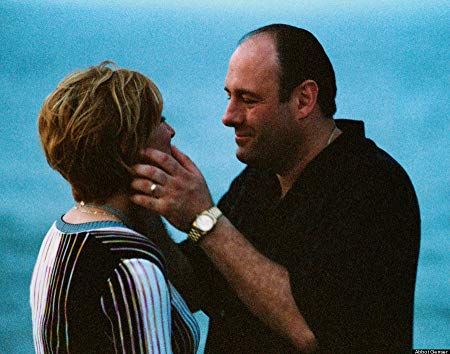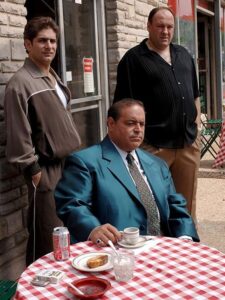
Sopranos’ Creator David Chase Reflects on 25th Anniversary: Uncovering the Legacy of a TV Icon
The world of television was forever changed in 1999 with the premiere of The Sopranos. Created by David Chase, the show became a cultural phenomenon, bringing the gritty world of mobsters, complex family dynamics, and psychological depth to the forefront of popular media. As we celebrate the 25th anniversary of this groundbreaking series, David Chase reflects on how The Sopranos came to life, its impact on TV history, and what it means today.
In this article, we’ll delve into the evolution of The Sopranos, explore Chase’s reflections on the series’ lasting legacy, and examine why the show still resonates with viewers even after all these years.
The Birth of a TV Revolution: David Chase’s Vision
When David Chase first pitched The Sopranos, he had a bold idea. He wasn’t interested in creating just another mob story. Instead, Chase sought to tell the story of a man torn between his loyalty to his family and his role as the leader of a criminal empire. This nuanced, multifaceted approach to storytelling set the show apart from anything that had come before it.

A Mob Boss with Depth: The Character of Tony Soprano
At the heart of The Sopranos was Tony Soprano, the iconic antihero played by the incomparable James Gandolfini. Tony wasn’t just a ruthless mob boss; he was a deeply conflicted man struggling with his mental health, his family relationships, and the moral compromises of his lifestyle. This blend of psychological complexity and mobster grit made Tony one of the most compelling characters in TV history.
Chase’s vision for Tony was revolutionary. Instead of glorifying the life of organized crime, he used Tony’s vulnerabilities and struggles to make viewers empathize with him, even as he committed unspeakable acts. This shift in perspective was part of what made The Sopranos so groundbreaking and culturally significant.
The Sopranos and Its Impact on Television
When The Sopranos first aired, it was unlike anything television had seen before. Chase’s vision of long-form storytelling, intricate character development, and complex moral dilemmas helped to elevate the medium to a new level.
Revolutionizing TV Storytelling
Prior to The Sopranos, television was often seen as a secondary medium compared to film. But Chase’s decision to craft a detailed, serialized story across multiple seasons proved that TV could be just as cinematic, rich, and engaging as any big-budget movie. This shift in perception paved the way for future TV masterpieces like Breaking Bad, Mad Men, and The Wire, all of which borrowed elements from The Sopranos.
Creating Complex Characters and Narratives
One of the key innovations of The Sopranos was its portrayal of morally complex characters. Instead of traditional “good guy” versus “bad guy” storytelling, Chase blurred the lines between right and wrong. Characters like Tony, Carmela, and Dr. Melfi weren’t just one-dimensional figures; they were multifaceted, with their own flaws, desires, and contradictions. This complexity made them feel real and relatable, even as they navigated the extreme world of organized crime.
The Show’s Lasting Legacy: Why The Sopranos Endures
The Sopranos may have concluded its run in 2007, but its cultural influence and relevance have only grown over the years. In fact, the show’s 25th anniversary has sparked renewed interest in both the series and its creator, David Chase.
The Enduring Appeal of Tony Soprano
One of the reasons The Sopranos continues to captivate audiences is because of its central character, Tony Soprano. The complexity of his character has made him a symbol of modern antiheroes—characters who are neither wholly good nor wholly evil but exist in a morally gray space. Tony’s struggles with mental health, his tumultuous family life, and his pursuit of power resonate with viewers in ways that are still relevant today.
The Sopranos and Modern TV
The Sopranos not only influenced the rise of other antihero-driven series but also set the tone for complex narratives in modern TV. Chase’s careful attention to detail, character development, and subversion of expectations set a standard that many shows still strive to meet. The series proved that audiences were ready for stories that didn’t offer easy answers or a clear moral path.
David Chase Reflects: The Journey of The Sopranos Over 25 Years
As The Sopranos celebrates its 25th anniversary, David Chase has taken a moment to reflect on the journey of the show and its impact on both the television industry and popular culture.
The Evolution of the Show: Challenges and Triumphs
In interviews marking the anniversary, Chase has spoken about the challenges and triumphs that came with creating The Sopranos. From the initial pitch to the final episode, the journey wasn’t always smooth, but the risks paid off. Chase’s decision to take bold creative steps—such as portraying Tony’s therapy sessions or ending the series with an ambiguous cut to black—was met with both praise and criticism, but ultimately, these choices helped solidify the show’s place in TV history.
The Importance of Ambiguity in The Sopranos
One of the defining features of The Sopranos is its refusal to offer neat resolutions. Whether it was the moral ambiguity of Tony’s actions or the famously unclear ending of the series, The Sopranos resisted easy answers. Chase has explained that this was intentional, as he wanted the show to reflect the uncertainties of real life.
The final scene, which left Tony’s fate up in the air, has sparked debate and discussion for years. Chase has hinted that he wanted the ambiguity to keep viewers engaged with the story long after it ended, ensuring that The Sopranos remained a topic of conversation long into the future.
David Chase and the Legacy of The Sopranos Prequel: The Many Saints of Newark
In 2021, David Chase revisited the world of The Sopranos with the prequel film The Many Saints of Newark. The film explores the origins of Tony Soprano, focusing on his early years and the influences that shaped him into the man we see in the TV series.
A Return to the World of Newark
For Chase, The Many Saints of Newark was a chance to delve into the backstory of Tony Soprano and the people who shaped his world. The film brings a new perspective on the characters fans know and love, while also providing a glimpse into the early days of the Soprano family. Although the film didn’t receive the same level of critical acclaim as the series, it was still a significant piece of The Sopranos legacy.
The Continuing Influence of The Sopranos on Pop Culture
The Sopranos has left a lasting mark on television and pop culture. From the iconic “Don’t stop believin’” scene to its portrayal of suburban mobsters and complex family dynamics, the show continues to be a reference point for creators and fans alike.
The Impact on Future TV Shows
Many of today’s most popular TV shows owe a debt to The Sopranos. Its approach to storytelling, character complexity, and its willingness to take risks have influenced everything from Breaking Bad to Succession. The Sopranos showed that television could be a medium for artistic expression, just as legitimate as film.
The Continued Popularity of The Sopranos on Streaming
In the age of streaming, The Sopranos has found a new generation of fans. The show’s availability on platforms like HBO Max has allowed younger viewers to discover the series and see for themselves why it’s considered one of the greatest TV shows of all time.
Conclusion: The Legacy of The Sopranos and David Chase’s Contribution to Television
As The Sopranos celebrates its 25th anniversary, it’s clear that David Chase’s creation is more than just a television show. It’s a cultural touchstone that reshaped how we think about storytelling, characters, and the possibilities of the medium. Whether you’re revisiting the series or watching it for the first time, The Sopranos remains a masterpiece that continues to captivate and influence audiences around the world.
Frequently Asked Questions (FAQs)
1. What made The Sopranos different from other mob shows?
The Sopranos stood out due to its deep psychological exploration of its characters, especially Tony Soprano. It combined the world of organized crime with family drama and mental health, offering a unique and complex narrative.
2. Why is Tony Soprano considered one of the greatest TV characters?
Tony Soprano is considered one of the greatest TV characters because of his complexity. He’s not just a mob boss